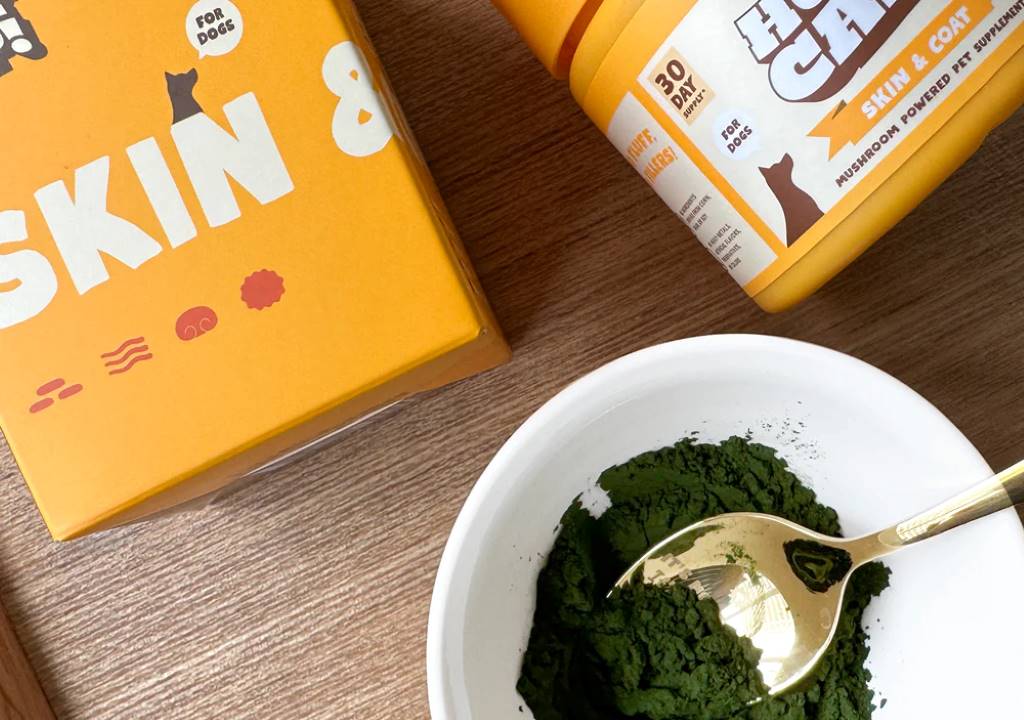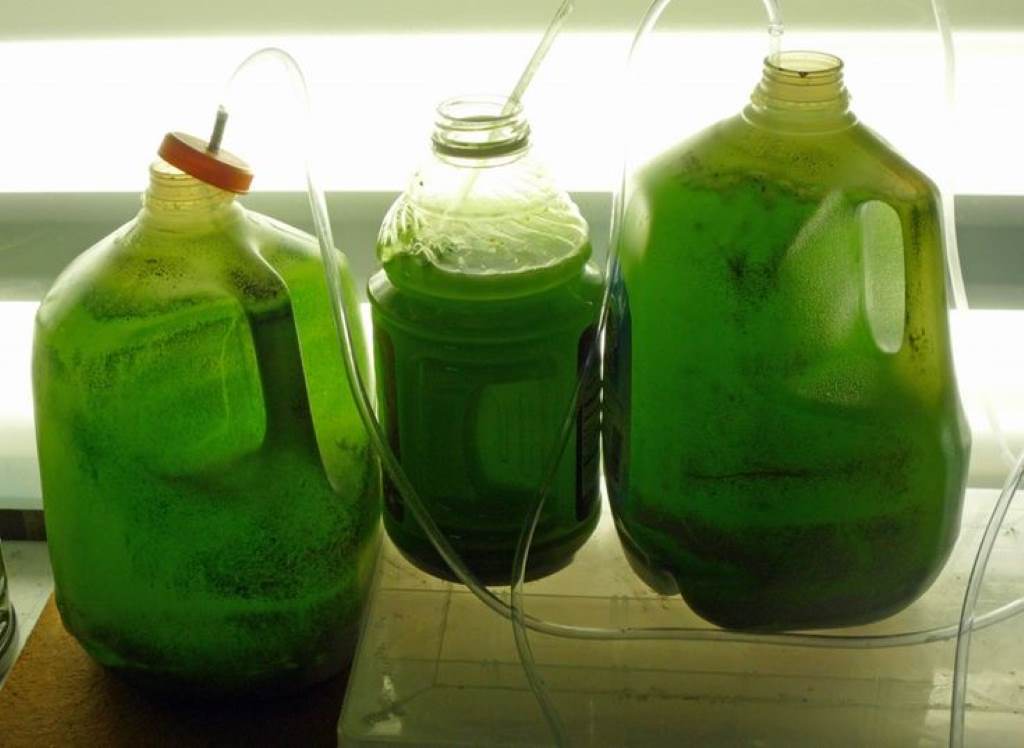
Your dog deserves the best. You feed them quality food, take them for walks, and shower them with love. But have you considered marine phytoplankton? This tiny superfood packs a powerful punch for canine health. It’s not just another supplement—it’s a whole food that fuels your dog’s body with essential nutrients.
Marine phytoplankton are microscopic algae that form the base of the ocean’s food chain. They’re loaded with omega-3 fatty acids, trace minerals, and antioxidants. These nutrients support everything from your dog’s coat to their joints. According to the National Institute of Health, omega-3s improve heart health and reduce inflammation in dogs. Studies also show phytoplankton’s antioxidants fight cell damage, potentially slowing aging. Ready to supercharge your dog’s wellness? Let’s dive into why marine phytoplankton is a must for your furry friend.
Table of Contents
ToggleWhat Is Marine Phytoplankton?
Marine phytoplankton are single-celled organisms that thrive in oceans worldwide. They’re the foundation of marine ecosystems, feeding everything from tiny zooplankton to massive whales. These micro-algae produce over 50% of the planet’s oxygen through photosynthesis, making them vital for life on Earth. For dogs, they’re a nutrient-dense powerhouse.
Unlike fish oil, which can oxidize and cause inflammation, phytoplankton offers a clean, sustainable source of omega-3 fatty acids. It’s packed with DHA (docosahexaenoic acid) and EPA (eicosapentaenoic acid), nearly double the amount found in fish oil by weight. It also contains superoxide dismutase (SOD), a potent antioxidant that fights free radicals. This makes it a top choice for canine health regimes.
Why Dogs Need Marine Phytoplankton
Dogs need a balanced diet to thrive. But even the best dog food can miss key nutrients. Marine phytoplankton fills those gaps. Its bioactive compounds are easily absorbed, even by dogs with digestive issues like leaky gut syndrome or exocrine pancreatic insufficiency. Here’s why it’s a game-changer:
- Complete Nutrition: Contains trace minerals, amino acids, vitamins, and omega-3 fats.
- High Bioavailability: Absorbs before reaching the gut, ideal for compromised digestive systems.
- Sustainability: Grown in controlled environments, it’s free of heavy metals and eco-friendly.
- Versatility: Safe for dogs of all ages, including pregnant animals, with proper dosing.
Pet owners report shinier coats, better energy, and improved mobility after adding phytoplankton to their dog’s diet. It’s a whole food, not a supplement, making it a natural fit for raw dog food or commercial diets.
Health Benefits of Marine Phytoplankton for Dogs
Marine phytoplankton offers a wide range of benefits. Its nutrient-dense profile supports your dog’s overall health. Let’s break down the key advantages.
1. Boosts Skin and Coat Health
Dry, itchy skin? Dull coat? Phytoplankton’s omega-3 EFAs hydrate skin and reduce irritation. The antioxidants, like chlorophyll and carotenoids, fight oxidative stress, which can cause skin issues. Owners often notice a glossy, healthy coat within weeks. For dogs with allergies, phytoplankton reduces scratching and shedding.
- Example: A 10-year-old Labrador with chronic itching saw less scratching after two months of phytoplankton supplementation.
2. Supports Joint and Mobility Health
Omega-3 fatty acids, especially EPA and DHA, reduce joint inflammation. This is crucial for senior dogs or those with arthritis. Phytoplankton’s anti-inflammatory properties improve flexibility and ease stiffness. It’s a natural alternative to fish oil, which may contain toxins like mercury.
- Statistic: A 2024 study from the Journal of Veterinary Science found omega-3s improved joint mobility in 78% of dogs with osteoarthritis.
3. Enhances Immune System Function
Phytoplankton’s antioxidants, including superoxide dismutase, protect cells from free radical damage. This boosts your dog’s immune system, helping them fight infections and recover faster. Trace minerals like zinc and selenium support immune health, reducing the risk of chronic diseases.
4. Improves Digestive Health
Dogs with sensitive stomachs benefit from phytoplankton’s digestive enzymes. These enzymes break down food, improving nutrient absorption. For conditions like leaky gut syndrome or canine gut soothe needs, phytoplankton delivers nutrients directly to cells, bypassing damaged digestive tracts.
- Case Study: A Beagle with exocrine pancreatic insufficiency showed better stool consistency after adding phytoplankton to its diet.
5. Supports Cardiovascular Health
Omega-3s promote heart health by reducing inflammation and supporting cardiovascular function. Phytoplankton’s clean, plant-based omega-3s avoid the heavy metals found in fish oil. This makes it a safer choice for long-term heart support.
6. Fights Aging and Chronic Disease
The antioxidant superoxide dismutase (SOD) is 3,500 times more potent than vitamin C. It neutralizes free radicals, slowing cell damage and aging. National Cancer Institute studies show phytoplankton’s antioxidants may have cancer-killing potential, making it a powerful tool for disease prevention.
7. Boosts Energy and Vitality
Phytoplankton’s nutrient-dense profile fuels your dog’s cells. Owners report increased energy, reduced hyperactivity, and even less anxiety in their pets. The micro-algae’s small cell size ensures nutrients reach mitochondria, the cell’s energy factory, for maximum vitality.
Marine Phytoplankton vs. Fish Oil: Why It’s Better
Fish oil is a common omega-3 source, but it has drawbacks. It oxidizes easily, causing inflammation. Fish often contain heavy metals, PCBs, and toxins, which pass to your dog. Overfishing also harms ocean ecosystems, creating dead zones. Marine phytoplankton is a superior alternative:
- Higher Omega-3 Content: Nearly double the omega-3 fats by weight compared to fish oil.
- No Toxins: Grown in bioreactors, it’s free of heavy metals and radiation.
- Sustainable: Cultivated on land, it protects marine life and reduces overfishing.
- Better Absorption: Its tiny cell size delivers nutrients even to dogs with digestive issues.
Green-lipped mussels and plant-based oils like hempseed are other options, but they lack phytoplankton’s full nutrient profile. For example, hempseed oil contains ALA but not EPA or DHA, limiting its benefits for dogs.
Read Also:
Is Neem Oil Safe for Dogs? A Complete Guide to Natural Pest Control
Why Is My Dog Licking Their Paws So Much?
How to Choose a Quality Phytoplankton Supplement
Not all phytoplankton supplements are equal. Poor-quality products may contain fillers or toxins. Here’s how to pick the best one for your dog:
- Check Purity: Look for 100% pure marine phytoplankton with no additives or fillers.
- Verify Sourcing: Choose products grown in controlled bioreactors, like those in Germany or Holland, to avoid ocean pollutants.
- Ensure Sustainability: Opt for brands that prioritize eco-friendly initiatives, like Adored Beast Apothecary or Mr. Ros.
- Read Labels: Confirm the product lists omega-3s, trace minerals, and antioxidants like SOD.
- Start Small: Begin with a small dose (1/16 tsp daily) to ensure your dog tolerates it.
Brands like Phyto Synergy and ULTANA™ Phytoplankton are known for their purity and sustainability practices. Always consult your vet before adding new supplements, especially for dogs with health conditions.
How to Add Marine Phytoplankton to Your Dog’s Diet
Adding phytoplankton is simple. Its fishy flavor makes it a tasty meal topper. Follow these steps:
- Start Small: Sprinkle 1/16 tsp (a pinch) over your dog’s food daily. For larger dogs, use 1/8 tsp per 30 lbs of body weight.
- Mix It In: Blend with raw dog food, wet food, or a healthy fat like coconut oil for better absorption.
- Monitor Results: Watch for improvements in coat, energy, or mobility over 6–8 weeks.
- Adjust as Needed: Consult your vet for precise dosing, especially for puppies or pregnant animals.
- Tip: Pair phytoplankton with probiotics, like Love Bugs, to enhance nutrient absorption and support canine gut health.
Sustainability: Why Phytoplankton Is Eco-Friendly
Marine phytoplankton is a win for your dog and the planet. Unlike fish oil, which contributes to overfishing, phytoplankton is sustainably grown in bioreactors. This process:
- Protects Marine Ecosystems: Avoids depleting krill or fish populations.
- Reduces CO2: Produces oxygen equivalent to a 7-hectare forest per million liters of water.
- Uses Filtered Water: Ensures no heavy metals or toxins harm your pet.
Brands like MARPHYL source phytoplankton from pristine waters near Vancouver Island, maintaining the balance of the Pacific Ocean’s ecosystem. Choosing phytoplankton supports sustainable farming and eco-friendly initiatives.
Potential Risks and Considerations
Marine phytoplankton is safe for most dogs, but there are considerations:
- Allergies: Though rare, test for sensitivity with a small dose.
- Iodine Levels: Phytoplankton contains iodine, beneficial for thyroid health, but excessive amounts may affect dogs with overactive thyroids.
- Dosage: Overdosing can cause digestive upset. Stick to recommended amounts (1/16 tsp daily for most dogs).
- Quality Control: Avoid products with fillers or unverified sourcing to prevent exposure to toxins.
Always consult a vet if your dog has health issues like liver inflammation or is on medication.
Real-Life Success Stories
Pet owners rave about phytoplankton’s benefits. Here are two examples:
- Max, a 7-year-old Golden Retriever: Max struggled with arthritis and a dull coat. After three months of Phyto Synergy, his mobility improved, and his coat shone. His owner reported less limping during walks.
- Luna, a 5-year-old Dachshund: Luna had digestive issues and frequent allergies. Adding ULTANA™ Phytoplankton to her raw dog food reduced her itching and stabilized her stools.
These stories show how phytoplankton can transform your dog’s health, from shinier coats to better energy.
FAQs
Is Marine Phytoplankton Safe for Dogs?
Yes, it’s safe when sourced from reputable brands. Start with a small dose and monitor for reactions. Consult your vet for dogs with health conditions.
Can Puppies or Pregnant Dogs Take Phytoplankton?
Yes, but use caution. Small doses are generally safe, but consult a vet to ensure proper dosing for puppies or pregnant animals.
How Much Phytoplankton Should I Give My Dog?
For most dogs, 1/16 tsp daily is enough. Larger dogs may need 1/8 tsp per 30 lbs. Sprinkle over food and adjust based on your vet’s advice.
Can Phytoplankton Help with Canine Diabetes?
Some evidence suggests phytoplankton’s antioxidants and omega-3s may reduce liver inflammation and balance blood sugar. More research is needed, but it’s promising.
Is Phytoplankton Better Than Fish Oil?
Yes, it’s cleaner, more sustainable, and has higher omega-3 content. It’s also easier for dogs with digestive issues to absorb.
Give Your Dog the Gift of Health
Marine phytoplankton is a nutrient-packed superfood that supports your dog’s overall health. From shinier coats to stronger joints, it delivers essential nutrients like omega-3 fatty acids, trace minerals, and antioxidants. Unlike fish oil, it’s sustainable and free of heavy metals, making it a smart choice for eco-conscious pet owners. Its bioavailability ensures even dogs with digestive issues benefit.
Ready to boost your dog’s vitality? Start with a high-quality product like Phyto Synergy or Mr. Ros Marine Phytoplankton. Sprinkle a pinch over their food and watch them thrive. Consult your vet, choose a sustainable brand, and give your furry friend the gift of long-term wellness today!
References:
- National Institute of Health: Omega-3 Fatty Acids Fact Sheet. https://ods.od.nih.gov/factsheets/Omega3FattyAcids-HealthProfessional/
- Journal of Veterinary Science: Omega-3s and Canine Osteoarthritis, 2024. https://www.jvetsc.org/
- National Cancer Institute: Antioxidant Properties of Phytoplankton. https://www.cancer.gov/
- Dogs Naturally Magazine: Benefits of Phytoplankton for Dogs. https://www.dogsnaturallymagazine.com
- MARPHYL Marine Phytoplankton: Sustainable Sourcing. https://marphyl.com

